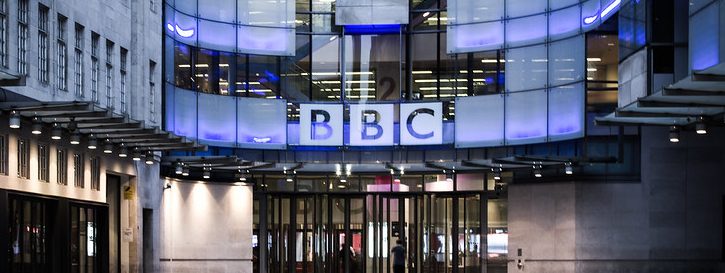The BBC’s decision to not air the opening ceremony of the Qatar World Cup live has drawn almost 1,500 complaints
The BBC has received almost 1,500 complaints from furious football fans over the decision not to air live the 2022 FIFA World Cup opening ceremony in Qatar.
A fortnightly report for the BBC’s complaints service showed that the broadcaster received 1,435 complaints from enraged football fans, who also criticised the “inappropriate or overly critical coverage of Qatar”.
The BBC refused to air the live coverage of the opening ceremony on Sunday, showing instead reports critical of the host nation, depriving viewers of a spectacular show at the Al Bayt stadium, which saw Hollywood star Morgan Freeman deliver a message of hope, unity and tolerance before Qatari singer Dana rocked the stadium.
Instead, viewers had to listen to a dull monologue by sports presenter Gary Lineker criticising Qatar over alleged corruption and human rights abuses.
In a statement on Wednesday, the broadcaster said that while it did not air the opening ceremony, it was available to watch on its on-demand service iPlayer, the BBC Sport website and its digital interactive service Red Button.
Commenting on the uproar over its decision, the broadcaster alleged that it regularly addresses “topical issues” as part of its coverage of all events.
“With regards to concerns about a discussion on the tournament being held in Qatar, while we have a long history of bringing major international football tournaments to audiences[…] we also have a proven record of addressing topical issues as part of our coverage,” the BBC said in a statement.
The BBC added that it felt the need to “reflect” the debate on human rights in Qatar given that it was “widely discussed, including by players themselves, government ministers and representatives, as well as the general public”.
The BBC was called out for applying what many described as double standards in its decision, which further echoed an anti-Qatar campaign mainly driven by the West over the Gulf’s nation to host the major tournament.
The BBC has also come under fire for applying a starkly different approach to the 2018 World Cup in Russia after human rights groups raised grave concerns over Moscow’s rights record.
Reports that resurfaced online this week showed Lineker defending Russia, adding that the “corrupt” United Kingdom should not judge Russia for hosting the World Cup.
“Who are we to start getting judgemental on who should have the World Cup?” he said at the time in comments to Radio Times.
At the time, Western media remained silent on Russia’s human rights violations, especially in Syria, where it has launched a bombing campaign in support of Bashar Al-Assad’s regime.
One Twitter user said: “The BBC is a joke, World Cup in Russia 2018 they broadcast the opening ceremony without a speech about human rights (Syria was getting bombed at that time by Putin). Same with the 2022 Olympics in China. Double Standards just because it’s in the Middle East.”
“The FIFAWorldCup ceremony started with [a] beautiful recitation of the Quran. Instead of showing the ceremony, BBC Sports or ITV Football hypocritically sat in Qatar virtue signalling and talking about how bad Qatar is,” another outraged Twitter user.
Others have also slammed the decision as “disrespectful”, as others questioned the reason behind the BBC’s abrupt decision while highlighting the country’s “neo-colonialism”.
“We don’t all support their neo-colonialism telling the rest of the world how to behave. Don’t like it, don’t go there. Otherwise, show some respect,” said a Twitter user on Sunday.
Prominent critic Piers Morgan had joined the social media uproar, where he said the BBC’s decision was “outrageously disrespectful to Qatar”.
“[The BBC] instead put out more virtue-signalling guff about how awful it is. If they’re that appalled, they should bring home their vast army of employees & spare us this absurd hypocrisy,” said Morgan.
‘Moral lessons’
Since making history in 2010 as the first Arab nation to win the bid to host the World Cup, Qatar has faced relentless scrutiny.
The criticism over the Gulf state was mainly driven by the West and has evolved over time, from focusing on its geographically small size to alleged violations of migrant workers’ rights.
Officials in Qatar had cited the West’s refusal to see a non-western country host the World Cup.
Qatar 2022 CEO Nasser Al Khater said “European countries feel they have a monopoly over the World Cup”.
“Europe has hosted 11 tournaments out of 22 tournaments, of course, it refuses that a country like Qatar or an Arab Muslim country hosts a tournament like the World Cup,” Al Khater told Al Jazeera Arabic in a televised interview earlier this month.
Qatar has repeatedly responded by citing its efforts to reform its legislation to address the concerns, most notably the dismantling of the controversial kafala, or sponsorship, system.
Under the system, employees were unable to freely switch jobs.
A day before the kick-off date, FIFA President Gianni Infantino said that Europe should apologise for “what it has been doing for 3,000 years” instead of offering “moral lessons”.







